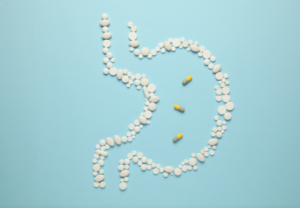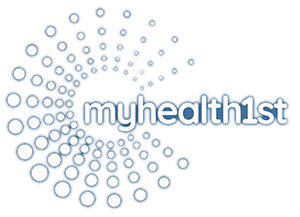We all reach for that quick fix sometimes, especially when it comes to managing uncomfortable symptoms like heartburn. Proton pump inhibitors (PPIs), like omeprazole and lansoprazole, have become a go-to medication for millions, offering fast and effective relief. But what if the convenience comes with a hidden cost? Recent research suggests a link between PPIs and sexual dysfunction, raising an important question: are these pills for our ills sometimes creating more problems than they solve?
Recent research published in the European Review of Endocrinology explores the connection between the use of PPIs and sexual health issues. The study found that people who take PPIs might experience:

One of the key findings of the study was the association between PPI use and hyperprolactinemia, a condition characterized by elevated levels of the hormone prolactin in the blood. Prolactin plays a role in sexual function, and high levels can lead to decreased libido, erectile dysfunction, and other sexual problems.
It’s also believed that PPIs might interfere with the production of nitric oxide, a molecule that plays a key role in achieving erections and maintaining sexual desire.
But the potential downsides extend beyond the bedroom. Studies suggest PPIs might also be linked to:
PPIs can interfere with how your body absorbs essential nutrients. For example, they can reduce the absorption of vitamin B12, magnesium, and iron, which are important for energy, muscle function, and overall health. This can lead to symptoms like fatigue, muscle weakness, and anemia.
Long-term use of PPIs may be linked to a higher risk of bone fractures, especially in the hip and spine. This might be due to a decrease in calcium absorption or changes in bone remodeling, which can make bones more fragile.
PPIs can alter the natural balance of bacteria in your gut, potentially weakening your immune system. This can increase your risk of respiratory infections like pneumonia and gastrointestinal infections caused by bacteria like Salmonella and Campylobacter.
Some studies suggest that prolonged use of PPIs might be associated with an increased risk of chronic kidney disease and acute kidney injury. It’s important to monitor kidney function if you’re on long-term PPI therapy.
Some studies suggest that PPIs may be linked to an increased risk of developing dementia, possibly due to effects on vitamin B12 levels or direct inhibition of enzymatic clearance of β-amyloid, though more research is needed to understand this potential risk.
These side effects raise a crucial point: our bodies are complex systems, and treating one symptom in isolation can have unintended consequences elsewhere.
 The Problem with Overuse:
The Problem with Overuse:While PPIs can offer temporary relief, there’s growing concern, for good reason, about excessive and unnecessary prescriptions. Studies reveal:
It’s crucial to understand that PPIs aren’t a magic bullet for heartburn. While they have a place in managing specific conditions, their long-term use requires very careful consideration and medical oversight. Remember:
The potential adverse effects of PPIs highlight the limitations of a purely pharmaceutical approach to health. While medications can play a role, they should be considered within a broader framework of holistic wellness and prevention. At MyHealth1st, we believe in empowering individuals to take charge of their health through a combination of:
At MyHealth1st, we believe in informed consent. We encourage you to:
Remember, your body is a complex ecosystem, and true health comes from addressing the root causes of imbalances. Don’t settle for a pill that simply masks the problem. By taking a holistic approach, you can achieve lasting relief and enjoy vibrant health from the inside out.
Ready to explore a more holistic approach to heartburn? Contact us today to learn more about how we can help.
References:
Cheungpasitporn, W., Thongprayoon, C., Kittanamongkolchai, W., & Ungprasert, P. (2015). Proton pump inhibitors linked to hypomagnesemia: a systematic review and meta-analysis of observational studies. Renal Failure, 37(7), 1237-1241. https://doi.org/10.3109/0886022X.2015.1057800
Freedberg, D. E., Kim, L. S., & Yang, Y. X. (2017). The Risks and Benefits of Long-term Use of Proton Pump Inhibitors: Expert Review and Best Practice Advice From the American Gastroenterological Association. Gastroenterology, 152(4), 706-715. https://doi.org/10.1053/j.gastro.2017.01.031
Goldstein, F. C., Steenland, K., Zhao, L., Wharton, W., Levey, A. I., & Hajjar, I. (2017). Proton pump inhibitors and risk of mild cognitive impairment and dementia. Journal of the American Geriatrics Society, 65(9), 1969-1974. https://doi.org/10.1111/jgs.14956
Lazarus, B., Chen, Y., Wilson, F. P., Sang, Y., Chang, A. R., Coresh, J., & Grams, M. E. (2016). Proton pump inhibitor use and the risk of chronic kidney disease. JAMA Internal Medicine, 176(2), 238-246. https://doi.org/10.1001/jamainternmed.2015.7193
Shah, N. H., LePendu, P., Bauer-Mehren, A., Ghebremariam, Y. T., Iyer, S. V., Marcus, J., … & Leeper, N. J. (2015). Proton pump inhibitor usage and the risk of myocardial infarction in the general population. PLOS ONE, 10(6), e0124653. https://doi.org/10.1371/journal.pone.0124653
Zhou, B., Huang, Y., Li, H., Sun, W., & Liu, J. (2016). Proton-pump inhibitors and risk of fractures: an update meta-analysis. Osteoporosis International, 27(1), 339-347. https://doi.org/10.1007/s00198-015-3288-3
European Review of Endocrinology (2023). Proton pump inhibitors and sexual dysfunction. https://pubmed.ncbi.nlm.nih.gov/35489049/

Lilly Young, raised in the realm of health and wellness by her mother, Dr. Lari Young, blends her passion for writing and medical research to offer insightful contributions to the MyHealth1st blog.

Join our newsletter for health news and My Health 1st events.